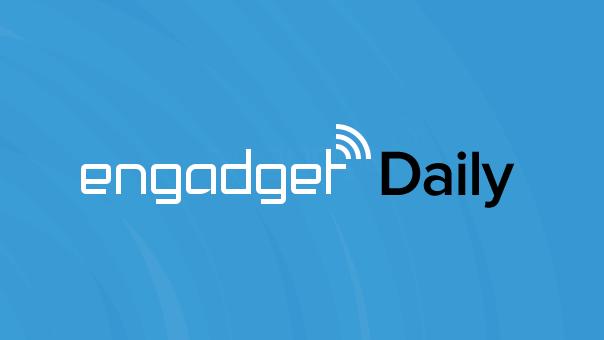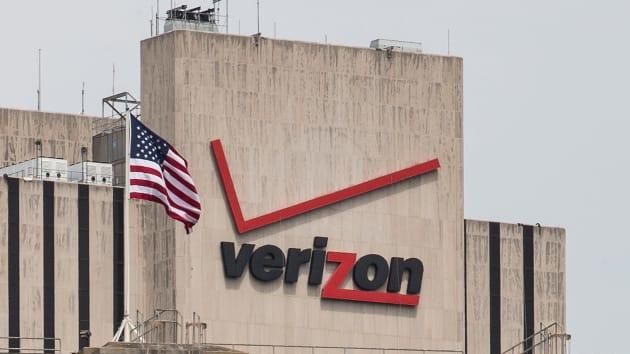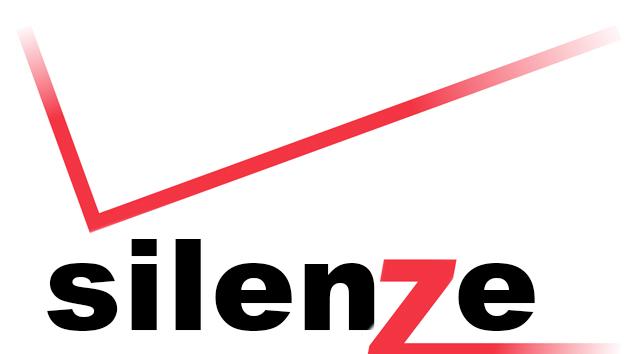net neutrality
Latest

Facebook opens up Internet.org in wake of net neutrality concerns
Led by Facebook but with backing from a number of other prominent tech companies, Internet.org has made slow but steady progress in a bid to connect underserved countries around the globe. However, despite its altruistic approach, the project has come under fire in India for allegedly violating net neutrality rules by favoring certain carriers, sites and services. Zuckerberg and co. certainly don't want those criticisms hanging over their head, so today the Facebook CEO confirmed that the company will open up the Internet.org platform to developers, allowing them to create their own mobile-centric tools for millions of (often) first-time internet users.

Tennessee sues the FCC to stop city-run internet
By re-classifying broadband internet as a utility, the FCC has effectively declared that it's a right, nay a necessity, for every American. That's why it also dismantled laws in states like Tennessee that restrict municipalities from supplying broadband and competing against private companies like AT&T and Comcast -- often with much better services. But on the same day that the broadband industry sued the FCC to stop net neutrality rules, the state of Tennessee also sued the regulator to overturn its city-friendly decision. It claims that the FCC "has unlawfully inserted itself between the State of Tennessee and the State's own political subdivisions," calling it "arbitrary, capricious and an abuse of discretion."

Pebble sets a new record, net neutrality passes and other stories you might've missed!
Pebble beats its own record, Motorola confirms what we already knew about the Moto E and Facebook takes a break from the sillier aspects of its site to get serious about mental health. Basically, we've got everything you need to know from this past week in one neat little package. Won't you catch up with us?

Daily Roundup: History of net neutrality, deconstructing Nintendo and more!
Welcome to the Daily Roundup. In today's news, you can learn about the history of net neutrality. Meanwhile, we look at Nintendo's unique strategy and fondly recall Leonard Nimoy. You can read all these stories and more past the break.

Here's how far we've come with net neutrality
The FCC's ruling on net neutrality yesterday was the agency's most significant action in decades -- but it didn't come easy. It's something that's been discussed ever since Columbia Law professor Tim Wu coined the term net neutrality 2003, which, at its most basic level, refers to treating all web traffic equally. But the idea goes back to the age of the telegram, when the US government committed to treating all of those messages the same. As broadband access became more commonplace and the internet economy recovered from the dot-com bust of the '90s, Wu's net neutrality paper was a warning against the increasing power of ISPs. Now that we finally have a decent set of net neutrality rules, it's worth taking a look back to see how we got here.

Daily Roundup: Net neutrality wins, digital brothels and more!
In today's news, the FCC approved its net neutrality plan, a "digital brothel" lets people have sex through the internet and Pebble smashes its own crowdfunding records. Read about all the top stories in today's Daily Roundup.

FCC approves net neutrality rules, reclassifies broadband as a utility
It's a good day for proponents of an open internet: The Federal Communications Commission just approved its long-awaited network neutrality plan, which reclassifies broadband internet as a Title II public utility and gives the agency more regulatory power in the process. And unlike the FCC's last stab at net neutrality in 2010, today's new rules also apply to mobile broadband. FCC Chairman Tom Wheeler laid out the basic gist of the plan earlier this month -- it'll ban things like paid prioritization, a tactic some ISPs used to get additional fees from bandwidth-heavy companies like Netflix, as well as the slowdown of "lawful content." But now Wheeler's vision is more than just rhetoric; it's something the FCC can actively enforce.

FCC chairman's net neutrality plan turns broadband into a public utility
Just as we expected, FCC chairman Tom Wheeler has come out in support of an open internet by invoking the agency's Title II authority, which will treat broadband internet the same as a public utility like telephone service. "Broadband network operators have an understandable motivation to manage their network to maximize their business interests," Wheeler wrote in an editorial on Wired. "But their actions may not always be optimal for network users." Specifically, Wheeler says the new rules will ban paid prioritization, which lets ISPs charge for faster access to its networks, as well as the slowdown of "lawful content and services." The open internet protections will also (finally!) apply to mobile broadband, which was left woefully untouched when the agency passed a limited net neutrality ruling back in 2010.

Daily Roundup: the best ads of the Super Bowl, Raspberry Pi gets an update and more!
In today's Daily Roundup we have a bargain price for a multi-million dollar maritime vessel, some serious upgrades for Raspberry Pi's latest board and it wouldn't be a post-Super Bowl Monday without at least one mention of our favorite ads. Read on for these stories and more!

The FCC will reportedly try to ban internet 'slow lanes'
It's only been a few months since President Barack Obama urged the Federal Communications Commission to start treating the internet as a utility, but it's enough time to have gotten the gears of policy a-spinning. According to a pair of new reports from the Wall Street Journal and the New York Times, the FCC chairman Tom Wheeler will soon do what some net neutrality advocates have been clamoring for for ages: Try to officially reclassify internet service as a telecommunications service under Title II of the Telecommunications Act. That'd effectively put internet access in the same bucket as landline telephone service, which is treated as a public utility in the United States, and would basically ban the paid prioritization of certain web sites and services over others. All that nitty-gritty should surface sooner instead of later -- the FCC is expected to release the new rules on Thursday, with a vote on them to follow at a meeting on February 26.

Obama pledges to 'protect a free and open internet,' tackle climate change
Leading up to the State of the Union, President Barack Obama criss-crossed the nation offering proposals on everything from free college, to cybersecurity and consumer privacy. But the president kept the details of these plans to a minimum during his address. Instead he used his pulpit to lay out a broader agenda, one that includes preserving Net Neutrality, combating global warming, promoting education and entrepreneurship.

Intel, IBM and Qualcomm come out swinging against Net Neutrality
Far as we can tell, the only people against net neutrality are the ones who want to keep holding Netflix to ransom. That said, those companies who actually build the network equipment and lay the cables for America's broadband network are now taking sides with AT&T and Verizon. In an open letter to both congress and the FCC, a group of 60 companies that include Qualcomm and Cisco, argue that proper regulation of the internet will risk the end of national investment in telecommunications infrastructure.

Verizon's self-serving tech news site is no more
SugarString, Verizon's news site that wouldn't cover its corporate parent's dirty laundry, is no more. It was originally set up to ape outlets like the one you're reading, except that Big Red banned discussion of spying and net neutrality. Unfortunately, just over a month since the Daily Dot exposed such limits, the site has been pulled from the internet. According to DSLReports, the company is now saying that SugarString was a "pilot project" and that it's evaluating, learning, and moving forward from the experience.

AT&T tells FCC its threat to halt fiber rollout is only for new projects
AT&T isn't backing down from its threat to halt its fiber rollout, which was a not-so-subtle jab at President Obama's pro-net neutrality / Title II comments earlier this month. Following an FCC inquiry about that announcement, AT&T said in a letter today that it's still going to move forward with existing fiber commitments -- it's just not going to make any new plans. AT&T's in a bit of a tricky spot: It already agreed to bring fiber to 2 million homes as part of its massive $48.5 billion Direct TV acquisition (which is still under regulatory review). But, well, new regulation bad! "AT&T simply cannot evaluate additional investment beyond its existing commitments until the regulatory treatment of broadband service is clarified," Robert Quinn, the company's senior vice president of federal regulatory, wrote in the letter. Check out AT&T's full response to the FCC below.

FCC Chairman says fear of lawsuits is holding up Net Neutrality
The Federal Communications Commission might seem slow, even resistant to calls for Net Neutrality, but FCC Chairman Tom Wheeler says the organizations slow reaction is very deliberate. "The big dogs are going to sue regardless of what comes out," the Chairman told reporters today. "We need to make sure that we have sustainable rules, and that starts with making sure that we have addressed the multiplicity of issues that comes along and are likely to be raised." In other words, the FCC's plans for an open internet need to be strong enough weather the legal ire of ISPs opposed Net Neutrality.

AT&T halts fiber build-out until net neutrality rules are sorted
AT&T is putting the brakes on its gigabit fiber internet service. CEO Randall Stephenson revealed this morning that the company will halt the rollout of the network, which launched in Austin last year, until it has solid net neutrality rules to follow. "We can't go out and invest that kind of money deploying fiber to 100 cities not knowing under what rules those investments will be governed," he said.

Verizon's tech news site won't cover anything that makes it look bad
It's a great time for technology journalism, with hundreds of sites all working very hard to bring you exhaustive coverage of their specialist field. Verizon, however, clearly doesn't feel that it's getting enough attention, which is why it's launched SugarString, a tech news site that covers "humanity's climb towards the new next." There is, unfortunately, a catch, which is that Big Red hasn't been able to stop itself from ensuring that some pretty big technology topics are strictly off-limits. The Daily Dot received an email, purportedly from new editor Cole Stryker, that claims that two subjects can't be discussed on the site: spying and net neutrality. "Wait," you ask us, "aren't they the two areas where Verizon's got plenty of dirty laundry?" to which we simply nod.

President Obama wants the FCC to abandon plans for tiered 'net neutrality'
President Obama found a place in the heart of many techies during his first campaign thanks to his staunch support of net neutrality. Six years later the debate still rages on, but Obama's position hasn't changed. During a Q&A in California on Thursday the President reiterated his support for the principle saying: "I made a commitment very early on that I am unequivocally committed to Net Neutrality... Tom Wheeler, knows my position. I can't-now that he's there-I can't just call him up and tell him exactly what to do. But what I've been clear about, what the White House has been clear about, is that we expect that whatever final rules to emerge, to make sure that we're not creating two or three or four tiers of Internet." That statement seems to stand in opposition to the current proposal sitting in front of the FCC which leaves plenty of wiggle room and loopholes for creating tiered service. Of course, he stopped shy of calling for broadband to be reclassified as a Title II service, which critics have said is essential for preserving true net neutrality. Reclassifying broadband under Title II would allow the FCC to regulate it as a "common carrier" like telephone lines, and would demand that ISPs act in "the public interest." [Photo courtesy of Getty, taken by Kevin Mazur for WireImage]

PBS Game/Show examines net neutrality and its effect on games
PBS' YouTube series Game/Show is generally apolitical, instead focusing on lighter topics such as the morality of cheating and our collective Hylian nostalgia, but in its latest entry Game/Show tackles net neutrality, and more specifically, how it impacts gamers. For those unaware, net neutrality refers to the idea that Internet service providers allow all web traffic, regardless of its source, to reach consumers with the same urgency. A lack of net neutrality would allow ISPs to offer certain content creators preferential treatment, most likely by setting up a fee structure. If, say, Google wants its search results to reach consumers in a timely manner, it would have to pay these fees to avoid having its traffic throttled. While large corporations would, in all likelihood, be able to afford such fees, smaller content creators could be priced out of the market, removing the freedom that's been an inherent component of the Internet since its creation. Of course, the end of 'net neutrality would also impact anyone hoping to play games over the interwebs. Though Game/Show is only focusing on a small slice of this volatile debate, it's a slice that's particularly relevant to our readers - and unlike your Internet service provider, PBS has no direct monetary interest in the topic. [Image: PBS]

Cable companies duped community groups into fighting net neutrality
Last week, it transpired that the big cable companies were bankrolling fake consumer groups like Broadband for America and The American Consumer Institute. These "independent consumer advocacy groups" are, in truth, nothing of the sort, and instead represent the interests of its benefactors, in the fight against net neutrality. If that wasn't bad enough, VICE is now reporting that several of the real community groups (oh, and an Ohio bed-and-breakfast) that were signed up as supporters of Broadband for America were either duped into joining, or were signed up to the cause without their consent or knowledge.









